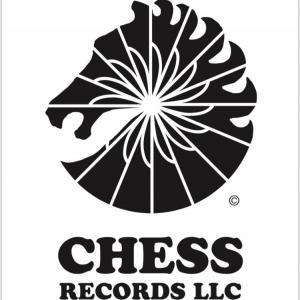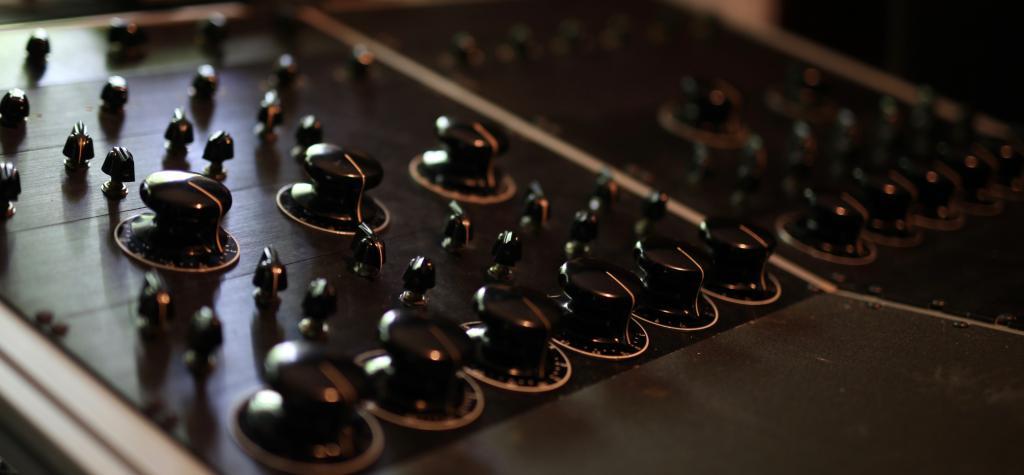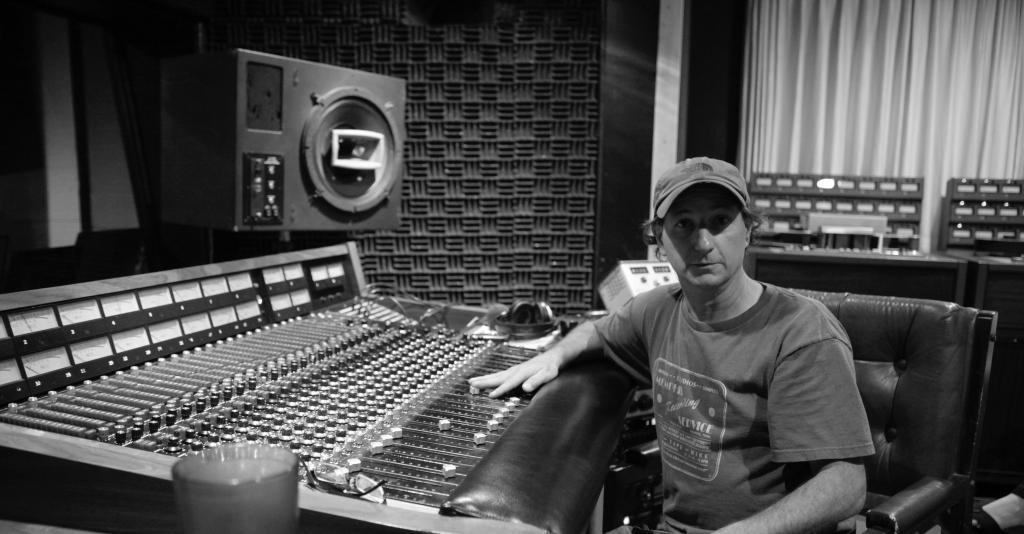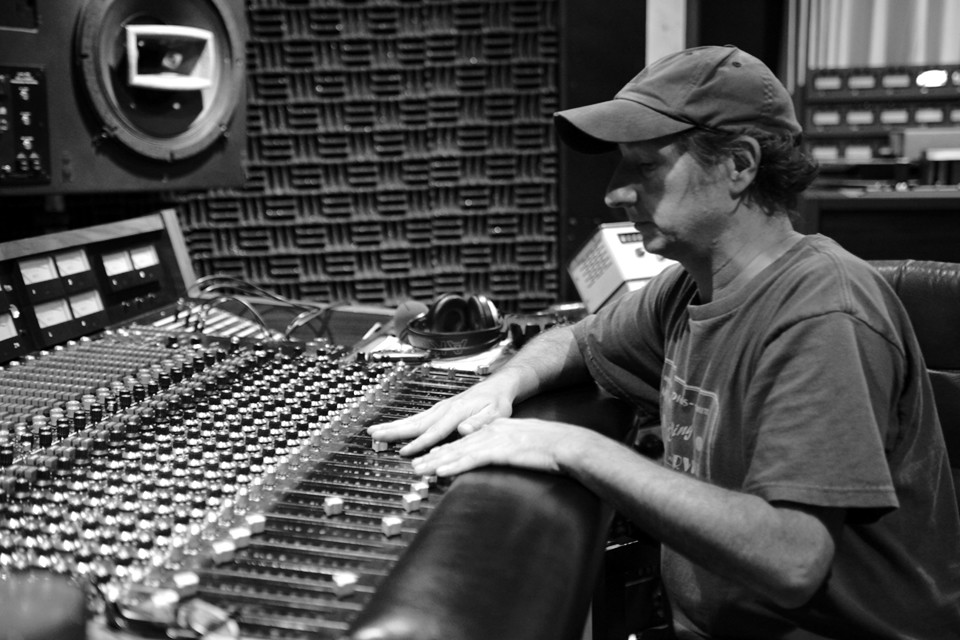 Abbey Road Studios, Hitsville U.S.A. (now the Motown Museum), Muscle Shoals Sound Studio, Chess, Sun Recording Studio: Speak these names and immediately the ghosts of legends are summoned to the forefront of our imagination.
Abbey Road Studios, Hitsville U.S.A. (now the Motown Museum), Muscle Shoals Sound Studio, Chess, Sun Recording Studio: Speak these names and immediately the ghosts of legends are summoned to the forefront of our imagination.
Whether it’s the Funk Brothers making Motown magic, Little Walter and Willie Dixon building the foundations of modern blues, the Beatles turning music on its head, Elvis and Jerry Lee Lewis capturing the raw energy of early rock and roll, or The Swampers reinventing rock, soul, country, and folk, studios have long been regarded as shrines. They are temples where the faithful would gather to create the music we hold dear today.
These studios in particular and the labels that found life within their walls are generally accorded “holy grail” status; their mojo and magic inspires us yet today. Therefore, although preserving these hallowed halls would be an arduous undertaking, it would ultimately be an act of love and a declaration of respect.
American Blues Scene recently spoke with producer, preservationist, and president of Chess Records LLC Noel Webster. In this first installment of our converstaion, we discussed the Chess building located at 2120 Michigan Avenue in Chicago and the various possibilities there. Webster also spoke of what it takes to preserve a property correctly, and how he has reincarnated and is reinventing Chess Records. He also tells us why he is an advocate for artists retaining the rights to their own work (publishing rights, writing credit, etc.).
Barry Kerzner for ABS:
Later we can cover what you are doing now. I want to talk about Muscle Shoals and the 13 years you spent there; the Black Keys’ Brothers recording there as well. I’m also looking forward to hearing your perspectives on Chess Records and what you are trying to do there. So, wherever you want to begin.
Noel Webster:
In doing these recording studios, I found a long time ago, a lot of these places have been lost to history. They just became, as Muscle Shoals Sound was, abandoned and the buildings were condemned. The rights to names and all the stuff associated with it was just scattered to the winds, and no one was using it. There’s always a lot of second-hand speculation. People’s opinions are who owns what and— it’s that kind of story.
What I discovered is all the gossip is false, in every case. When I moved out to Muscle Shoals, the studio was condemned and the city of Sheffield was going to knock the whole block down over there! I went ahead and bought the property, and it was amazing that, as a structure, we kind of treated it like an archeological dig. We took the garbage out and started with a fresh slate which was the studio itself, and started rebuilding all that stuff.
But, what happened during the course of that was the name was not trademarked. The artwork to the T-shirts was never copy-written or trademarked. There were no service marks. All that stuff was available and it was very odd that people weren’t keeping that together. So, it was more than just rebuilding a studio and putting the studio back in and go back to work. We had to take and bring all of the technical info regarding what the name and the plates and reviving it and bring all that back home to the same location.
When we did that we also had to go through, in addition to that, we went and did all the historical research with Gene Ford; he’s an architectural historian in Moundville. We had to give it a designation. We had to go to the National Park Service and apply for Landmark Status where it’s recorded with the Director of the Department of the Interior for Historic Places. That’s a whole other process in addition to all the other processes.
Once it was secured, now it has a designation. Now, it’s an actual historic site.
You are talking about the location at 3614 Jackson Highway, correct?
That is correct. In addition to that, while we were building and getting all this stuff together, doing sessions and running the studio, my friends in New York donated the Museum of Sound Recording. They had been collecting this stuff for 34 years of equipment in this non-profit and they were running out of places to store it. It was in the RKO Theatre in New York, the old RCA building up there in Trenton, NJ.
Right.
They sent me down six semi-trailers of equipment, from our country’s history. It was film, recording studios: Capital Records was part of it. The Mercury Theatre was part of it.
Nice!
There’s all kinds of famous equipment that was used throughout history that people just got donated to them and they donated it all to me.
That’s incredible.
I had to warehouse it behind the studio. So, we had all that stuff packed up in there. Over a three-year period, I had to deal with all that as well. I found a lot of it homes and some of it is still here in use. In vintage studios, you can count the major ones on your hand, now can’t you?
Oh yeah, pretty much.
That aren’t in business anymore. So, Chess [Records] was another one, and I’m from Chicago. I went up there and visited the place, and it was empty. [I thought] “Well, what’s going on up here?” I got to talk to the building owners who don’t even live in the city; they actually live in California. We’re in the process of making a proposal for them to see which way they want to go with it. We’ll propose what we have to offer and things like that.
One of the things with Chess, while I don’t own that building, we can secure all the marks and do all the technical steps of the legal stuff on the opposite side of that to own the corporation name, to trademark, to copyright, to do all that stuff — to protect it.
Right.
Then we can turn it over to its old location, and operate it out of there as well.
You’re speaking about 2120 Michigan Ave, right?
Michigan. Yes.
Marie Dixon; Willie Dixon’s Blues Heaven Foundation had purchased that and they operated out of there. I’d interviewed her and visited there as well. So, to be clear, she’s gone now; she left us a couple of years ago. The new owners…
Yeah; we’re making a proposal to her son.
Ah. OK.
And his sister. They own the property.

Right.
They said that they were more than happy to put our proposal in front of the board for their consideration. I think it would be a fantastic turn of events for that foundation to operate as Chess Records and to put the name on the building, which we own. So, if we can settle that up, I think that would be a wonderful thing. Then we could move forward perhaps making it a historical site as well, not just a Chicago city landmark. That’s not a designation; a designation has to come from the National Park Service.
Right; the registry.
There’s a lot involved in that. It takes several years to get done, but we can do that type of work. We’re probably that only guys in the country that can ‘cause we did it with Shoals Sound. If you’re using some studios as a template John Schorr seems to do really well with that, and his marketing of Sun, and things like that. What it does is it preserves the building.
The way I did it is — Those places are history, but we’re just passing through so someone has to protect that. Someone has to designate it, list it with the park service, protect it, operate it, and make it available for people to see.
Absolutely.
It’s a combined effort of a lot of folks.
That has to go through the national registry to be legit.
Yeah – the National Park Service.
I believe the designation is listed on the Registry of Historic places; is that correct?
That is correct. What happened is, Chess Records is not on that. Motown is not on that.
Really?
Can you believe? Motown is a “state landmark.” [It] has nothing to do with National Park Service, so it has no designation. So, one day, I’d like to go up there and get Motown as well. We need to get these things locked in for these people because it gives them benefits; there’s lots of advantages to doing that.
Me and Gene seem to be the guys to do that. We’re doing Willie Mitchell’s place, Hi Records in Memphis. We started that project and hope to conclude with that at some point in the near future. Al Green did his stuff there with Willie Mitchell.
Chess is just one more of these studios that are very famous that needs to be protected. And if we come to terms or agreement to say hey, they wanna put a recording studio in there, we’ll build a recording studio in there that’ll be historically accurate.
I advised them not to put a lot of junk in there, and Pro Tools and make some sort of new wave whatever out of that place. If they can keep it historical, then they can do some pretty cool stuff up there.
Yeah, we don’t want to put Trump Tower on top of Lincoln’s log cabins.
Honestly, that’s the problem. Time marches on; we all know that. I mean shipbuilding isn’t what it was like in Ireland in 1912 when they launched the Titanic; we’ve moved on. The thing is, that doesn’t mean that you don’t preserve the methods. It has to be preservation. For it be designated, you have to do it right.
You have to have the alfact materials, period pieces, things have to operate as they were in fact. We’ve located the actual equipment that came out of that building to begin with. It’s still in existence.
That’s the Chess building you’re referring to?
Yes. There’s some money involved in obtaining that, not an outrageous amount but I think that they should go back with period pieces and make it authentic. The tighter it is, the better it is, the more authentic it is, and that’s what you want to leave for prosperity.
So you have period pieces or the actual equipment that came out of there?
The actual — We have access to the actual equipment.
That’s incredible!
The actual console, tape machine, yes sir. That’s the level of integrity we would like to restore back in that location.
It has been done right and that’s the point of doing all this work to get it nominated on the registers is to make sure it’s right. At Muscle Shoals Sound we have the exact stuff in there. Same tape machine, same console, same everything. Even though they went through transition, in different periods, we decided on a period and that’s what we put in there and went rolling with it.
If they [Chess building] want to go to that extent, we can. If they don’t then we can put period pieces in there and make it work. Still, when you walk in that room, it’ll take your breath away.
As I’m sure you know; Jack White is huge into preservation of a different sort: vinyl and historical labels such as Paramount.
Yeah. He’s been doing a lot of that stuff.
So, have you tried to contact and or work with entities such as that? Are you reaching out to folks to help you fundraise and contribute to make this happen?
No. Not at this point. At this stage, we wouldn’t require any other people to get this to happen.
Got ya.
Now at some point if we decide… Our company at Chess is incorporated, so do have the ability to bring on members or investors. What happens is ultimately — it’s not our property; it’s not our choice. What we can do is offer them the use of the name and things like that and they can, in turn, give us an office up there or something like that so we can operate out of that location. That’s what they would have to do in order for us to be completed.
It’s entirely up to them [Willie Dixon’s Blues Heaven Foundation at the old Chess building 2120 Michigan Ave] and what we would do is make our proposals, lay it in their lap and show them what we can do, and let them decide what they want to do. And, how much they want to be involved. I wouldn’t suggest putting equipment in someone else’s building, that belongs to me that is sitting in their building that we have no use of. Or chances of it being damaged. If you’ve ever been in any of these old studio museums, the first thing that happens is all the knobs get stolen off the board. Things start coming up missing. Things get damaged. See what I mean?
For sure.
There are ways to protect and alleviate those problems. It’s entirely up to the board up there if they want us involved or not. Right now, until we started Chess to bring it back to life as a label… There again, we had to own the artwork; all the artwork for Chess. I had to obtain that. We started the corporate name. We have a corporation that we operate under as Chess Records. All of our background documents for bookings and promotions; all the records that we do — all that type of legal documents — we had to do all that type of stuff to operate as a business. We’re doing that right now in Huntsville, AL.
So, we can go to other studios, and Chess can be subsidized all over the place. We can use other studios under the Chess logo. Does that make sense?
Right. If I’m understanding you correctly, ultimately you would like to do everything out of the Michigan Ave location?
Well, that would be another location, and that would be a wonderful thing to do to protect that building. That would be the ultimate goal if they choose to do so, yes.
The name of your corporation is Chess Records?
Chess Records LLC
The art work for example; like the artwork for Muscle Shoals Sound. Chess had two different logos. It one with the three chess pieces – that’s in Chess Records Corp and there’s another one that was Chess records that was the horse-head symbol later on in the seventies. Well, I’m the author of copyright. We secured it.
And, we’re operating the corporation so… and we have an active studio. We have products coming out right now on Chess Records. That’s just part of the scenario of this, to be in Chicago at that location. That’s entirely up to those people. We’re here to help. When we make our proposals, hopefully we can agree on some stuff and get rolling. That would be a huge, huge thing for them to be able to use the name and logos on that building.
Yes, absolutely!
I think the City of Chicago would be very pleased with that as well as it would be a great advantage to them to do that.
So if I understand you correctly, the Michigan Ave building in Chicago and that proposal and all that goes with it aside, you are currently or about to issue music on Chess Records?
Yes sir. We’ve already recorded albums that are going to be released very soon. The records are already done and in the can.

And those are new contemporary artists or old artists?
Brand new artists, and we have other people that are wishing to sign up with this label. The beauty of it is, as a record company, it would be wonderful to let artists work under that banner, without getting the publishing. Imagine that?
Run that by me again?
We’d be the first label in history probably to have artists use our brand, without getting their publishing. I have no interest in getting their publishing rights – royalties.
You’re letting them keep all the rights to their own work is what you’re saying.
Yes.
That would be huge!!!
That’s unheard of. We record their product; we mix, we master, we manufacture that product. And then, we’ll lease them the brand, and they keep all of their publishing and all their writers. That would be a wonderful business model for the artist because that’s unheard of in this business.
See, every label that signs somebody, they’ll sign them with the caveat that the label has the publishing – the distribution rights. We don’t want to control someone else’s career or their publishing. I have no interest in that. I have interest in making product and letting those guys run as far as they can.
I’m sure that you are familiar with the work of Mrs. Dixon and Willie Dixon’s Blues Heaven Foundation. One of their big things was educating artists about how important their rights were.
Yes.
That was a considerable part of what they did.
Sure. That’s what I’m saying. In keeping with the times, Willie Dixon thank goodness preserved his publishing. I think his son operates and controls all that because without it, those guys would just be getting writer’s credit and the other half of the money would all go to the publisher. The publisher would dictate who when and why records their songs — without the consent of the artist. They can bring on other writers if they want to, dragging the artist’s rights down to nothing which they do quite often.
I have no interest in being in that type of business. I’m here to make a product for people and put it out and keep that name [Chess Records] alive as an active living entity. Whether it’s here in Alabama, whether it’s in Georgia, or Nashville or Chicago at that location.
In light of you putting out the product and a catalog, what about all the old recordings; the old catalog?
No, no, no. Totally different. The last stuff they recorded was in 1975 when that label ceased to exist. That is owned by UMG. They handle the publishing; they’re a publishing company of publishing rights. They administer the rights to that catalog of all those previous artists.
So everything that Chess did up until and through 1975 when they closed down…
Yes. Somebody bought the publishing. It changed hands several times.
Yes it did. GRT, All Platinum, and right on down the line. There was a whole series of owners.
Yeah. Geffin, MCA, … Yeah, they own that. That’s a publishing company that owns that — not a recording studio. That’s not Chess Records.
Yes.
See what I mean?
Yes. They own the material, the music, the rights to the publishing, etc.
Sure! And that’s fantastic. They can keep reissuing that forever. In any format. They can lease it to some movie rights; they have all kinds of options. You can do that in that world. But what we’re doing, has nothing to do with publishing.
Great. I just wanted to clarify about the old catalog versus what you’re doing because I know without fail, if I write an article somebody is gonna want to know “What about the old catalog?” So, thanks for answering that.
We have no interest or no knowledge of anything that happened back then, of 1975, prior. That is the publishing business, and we are not concerning ourselves with that. They’re two different companies; two different worlds.
Stayed tuned for the second installment coming soon…
*Featured Image Photo by Charlie Gillespy

